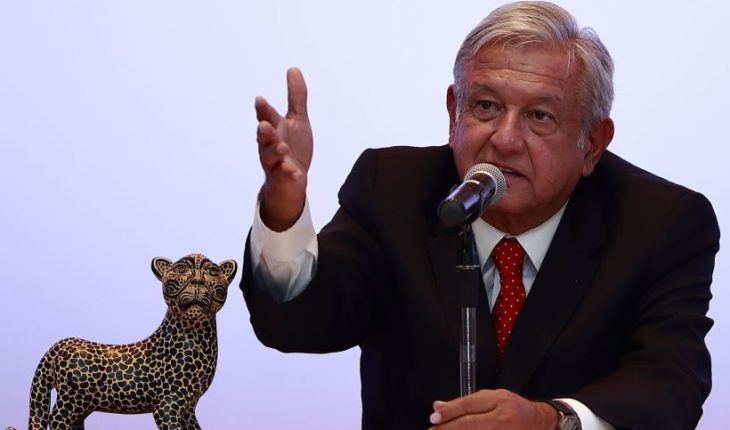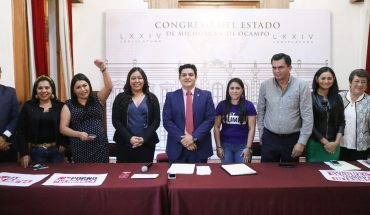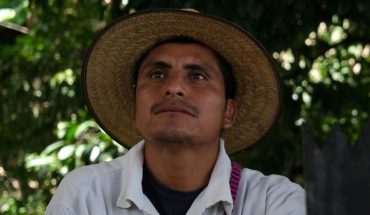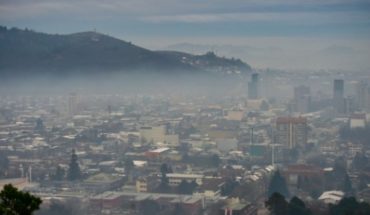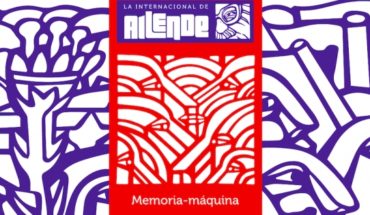Although a close member of his government tested positive for the coronavirus, Mexican President Andrés Manuel López Obrador said on Monday that he does not plan to take the test although he would reconsider an upcoming country tour and a trip to the United States.Zoé Robledo, director of the Mexican Institute of Social Security (IMSS), announced on Sunday night that he had tested positive for the virus two days after sharing with López Obrador a public event in Tabasco , in the southeast, and at other public events in recent weeks.” I don’t get tested because I don’t have the symptoms. Luckily I’m fine and I take care of myself and keep the healthy distance,” the newspaper said at a press conference. Hours later, IMSS announced that three other agency officials who were in contact with Robledo were also positive. All three are asymptomatic, in good health and from home confinement work. The Mexican president reported that so far no one else of the staff who accompanied him during the eight-day trip has had health problems but said he is reconsidering touring the country next week as planned, as well as a trip to the United States to launch the free trade agreement between Canada, the United States and Mexico (T-MEC) that begins on July 1. As of Sunday night Mexico reported 117,103 cases of COVID-19 and at least 13,699 deaths. Meanwhile, to prevent further contagion at Bogota’s wholesale food plant, the amount of the public in the complex where 78 people have been infected so far will be restricted by 50%.” What is intended is that of the more than 150,000 people who entered this food complex daily reduce it to 75,000 but with strict controls of hygiene, estrangement and established schedules,” said Agriculture Minister Rodolfo Navarro.On the other hand, four of Bogota’s 85 shopping malls reopened for an eight-day pilot test, with mandatory distance and cover , and the maximum 35% of the public to assess whether the total opening of these establishments can be allowed from 15 June. For his part, the director of Migration Colombia, Juan Espinosa, told the AP that due to the new rules of Venezuela – which allows the return of its citizens only three days a week – the departure of migrants from the border town of Cúcuta will be reduced by 80%. An estimated 7,000 Venezuelans are waiting to leave from that city. In Colombia, 40,719 are infected and 1,308 dead. In Argentina, where more than 22,700 people are infected and 670 killed, the inhabitants of 18 of the 24 provinces left behind the mandatory social isolation that governs since March 20 nationwide and entered a new stage of “distance” in which they can consume in bars, return to hairdressers and practice sports with distance protocols. In the meantime, quarantine will remain until June 28 in and around Buenos Aires, where most cases are concentrated. The Deputy Minister of Health of the province of Buenos Aires, Nicolás Kreplak, noted that quarantine in the capital and its urban belt could extend to August because there, unlike in the rest of Argentina, “the slope is still rising” of positive cases. Chile, meanwhile, reduced the number of new infected and dead reported on Monday by around 25% after the maximum number of infected and killed in three months was reported by the day. Meanwhile, police checks to reduce people’s mobility were intensified in greater Santiago. Health Minister Jaime Mañalich reported 4,606 infected and 74 died in the last day, 27% and 23% respectively than saturday. The country has 138,846 cases and 2,264 dead. Claudio Castillo, a public policy expert at the University of Santiago, told The Associated Press that the number of new infected people fell from 13.2% about a month ago to 1.3% last week. However, he stressed that the rate of contagion has not slowed. Chile is still on a rising curve but at a slower speed, he explained. In El Salvador, with the participation of 18 productive sectors of the country, the government of President Nayib Bukele activated the table on Monday to plan the orderly reopening of the economy, safeguarding health and life. In the meantime, the government deployed 800 vehicle controls nationwide to verify that people comply with mandatory home quarantine ordered by the Ministry of Health and only leave authorized persons. On social media, calls were made for companies to open their doors, but the government warned that it would not allow it and threatened to impose sanctions. However, small businesses such as hairdressers or beauty salons were already serving their clients, but “almost clandestinely.” I am already cared for my clients, but by dates and only to the acquaintances, I do not have fully open,” he told the AP, a woman who owns a beauty salon, who just said she called herself Hope, and who asked not to be identified for fear of possible sanctions. El Salvador records 3,104 confined cases, 56 deaths and 1,361 recovered. In Bolivia there was a day of protests. In the center of La Paz, hundreds of artists set out to not eliminate the Ministry of Cultures after the interim government arranged for closure to save costs and use them to prevent the pandemic.” A society without culture, it is a country without a soul,” said one of the posters carried by the artists, who after quarantine are out of work and call for the continuation of the economic funds given to artistic projects. In the neighboring city of El Alto, a group of sex workers went on hunger strike at the request of being allowed to resume their activities, as the isolation of more than 70 days has affected them financially. His representative, Lily Cortez, said they even filed a biosecurity protocol, which was rejected by the mayor’s country because it needs better preparation. In the second week of the reopening of activities in the country, a decrease was recorded on Sunday in confirmed cases. The Ministry of Health reported 285 new cases, bringing the total number to 13,643 and 465 deaths. In Venezuela, the total number of victims rose to 2,451 after 96 new cases were counted in the last 24 hours, 90 of them venezuelans who entered from Colombia and the remaining six confirmed among the support and security personnel deployed at border posts, near Colombian villages, vice president Delcyz said in a remote statement. The Vice-Chairperson welcomed that for the second day in a row “no cases of community transmission have been recorded”, stressing that in this South American country most cases are “imported” from neighbouring countries. The death toll remains at 22, while 487 patients are recovered and 1,964 active cases are recorded, said Rodriguez.In Latin America, more than 1.3 million contagions have been reported and more than 66,700 people have been killed. Coronavirus has infected more than seven million people and killed more than 405,000 worldwide, according to the Johns Hopkins University Center for Systems Science and Engineering, which bases its data on reports from governments and health authorities in each country. In most people this virus causes mild or moderate symptoms that go away in two to three weeks. But in some people, especially older adults and those with underlying health disorders, it can cause more serious illnesses and even death.
translated from Spanish: Mexican president caused a stir after ruling out Covid-19 test despite cases on his team
June 9, 2020 |
